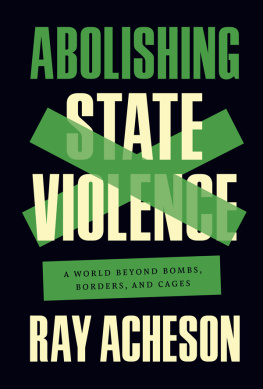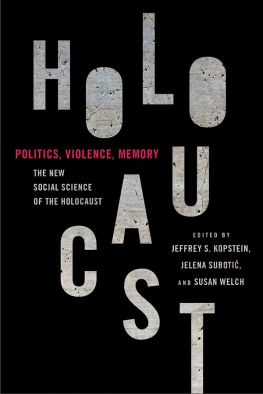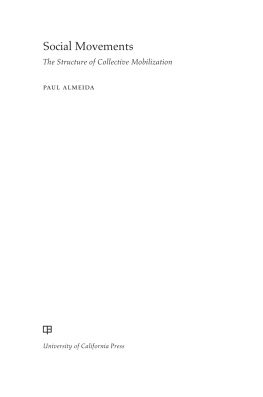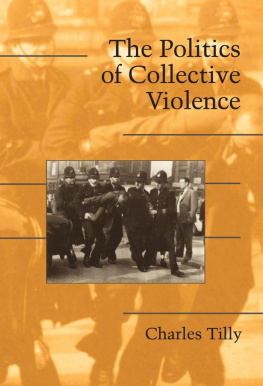A Micro-Sociology of Violence
This book aims at a deeper understanding of social processes, dynamics and institutions shaping collective violence. It argues that violence is a social practice that adheres to social logics and, in its collective form, appears as recurrent patterns. In search of characteristics, mechanisms and logics of violence, contributions deliver ethnographic descriptions of different forms of collective violence and contextualize these phenomena within broader spatial and temporal structures. The studies show that collective violence, at least if it is sustained over a certain period of time, aims at organization and therefore develops constitutive and integrative mechanisms. Practices of social mobilization of people and economic resources, their integration in functional structures, and the justification or legitimization of these structures sooner or later lead to the establishment of new forms of (violent) orders, be it at the margins of or beyond the state. Cases discussed include riots in Gujarat, India, mass violence in Somalia, social orders of violence and non-violence in Colombia, humanitarian camps in Uganda, trophy-taking in North America, and violent livestock raiding in Kenya.
This book was originally published as a special issue of Civil Wars.
Jutta Bakonyi has worked at the Universities of Hamburg and Magdeburg and the Max Planck Institute for Social Anthropology in Halle (Saale), Germany. Currently she is with the Civil Peace Service in Kenya. Fields of research include: political sociology of world society and the state, causes and dynamics of violence and wars, conflict management, and urbanisation.
Berit Bliesemann de Guevara is senior researcher and lecturer at the Institute for International Relations, Helmut Schmidt University Hamburg, Germany. Fields of research include: the international politics of state building, orders of violence, knowledge production in international conflict management, and charisma in politics.
A Micro-Sociology of Violence
Deciphering patterns and dynamics of collective violence
Edited by
Jutta Bakonyi and Berit Bliesemann de Guevara
First published 2012
by Routledge
2 Park Square, Milton Park, Abingdon, Oxon, OX14 4RN
Simultaneously published in the USA and Canada
by Routledge
711 Third Avenue, New York, NY 10017
Routledge is an imprint of the Taylor & Francis Group, an informa business
2012 Taylor & Francis
This book is a reproduction of Civil Wars, volume 11, issue 4. The Publisher requests to those authors who may be citing this book to state, also, the bibliographical details of the special issue on which the book was based.
All rights reserved. No part of this book may be reprinted or reproduced or utilised in any form or by any electronic, mechanical, or other means, now known or hereafter invented, including photocopying and recording, or in any information storage or retrieval system, without permission in writing from the publishers.
Trademark notice: Product or corporate names may be trademarks or registered trademarks, and are used only for identification and explanation without intent to infringe.
British Library Cataloguing in Publication Data
A catalogue record for this book is available from the British Library
ISBN13: 978-0-415-69562-6
Disclaimer
The publisher would like to make readers aware that the chapters in this book are referred to as articles as they had been in the special issue. The publisher accepts responsibility for any inconsistencies that may have arisen in the course of preparing this volume for print.
Contents
Jutta Bakonyi and Berit Bliesemann de Guevara
Ward Berenschot
Jutta Bakonyi
Nora-Christine Braun
Adam Branch
Cora Bender
Karen M. Witsenburg and Wario R. Adano
Jutta Bakonyi has worked at the Universities of Hamburg and Magdeburg and the Max Planck Institute for Social Anthropology in Halle (Saale), Germany. She obtained her PhD with the thesis Economy and Society in Wars, comparing dynamics of violence and processes of social reconstruction in the Somali war. Currently she is with the GIZ-Civil Peace Service in Kenya where she manages a transitional justice project. Former fields of research comprise the political sociology of world society, state-building and -decay, phenomena of violence and war, and conflict management.
Berit Bliesemann de Guevara is senior researcher and lecturer at the Institute for International Relations, Helmut Schmidt University Hamburg, Germany. She earned her PhD with a work on the international politics of state building in Bosnia and Herzegovina, for which she received the German Studies Award 2009. Currently, she analyses the ways and role of knowledge production in international interventions. Research also includes: dynamics of state building and state-formation, orders of violence, rhetoric and reality of the international community, and charisma and politics.
Ward Berenschot studied political science. He is a post-doctoral researcher at the Royal Netherlands Institute of Southeast Asian and Caribbean Studies (KITLV) where he works on a research project on citizenship and clientelism in India and Indonesia. He is the author of Riot Politics: Indias Hindu-Muslim Violence and the Indian State (Hurst/Colombia University Press 2012).
Nora-Christine Braun studied social anthropology, prehistoric archaeology and geology at the Eberhard-Karls-Universitat Ttibingen and at the Universidad de los Andes in Bogota, Colombia. Currently, she is writing her doctoral thesis at the FU Berlin on the politics of aid for internally displaced persons in Colombia for which she conducted long-term ethnographic fieldwork in 2003-04 in that country.
Adam Branch is assistant professor of political science at San Diego State University and research associate at the Makerere Institute of Social Research in Kampala, Uganda. He has a PhD in political science from Columbia University. His work examines the politics of Western intervention into political violence in Africa, and his first book, Displacing Human Rights: War and Intervention in Northern Uganda, was recently published by Oxford University Press.
Cora Bender is a social/cultural anthropologist at the Department for Cultural Research, University of Bremen, Germany. Her monograph about Sovereignty and Patriotism: Native American Media and the Modernisation of Knowledge Culture (in German) is based on years of recurrent ethnographic field work among the Ojibwe of Wisconsin. She is presently engaged in a new project about Native American diabetes which is part of her ongoing research on the construction of the body in the intercultural exchange between indigenous societies and mainstream American culture. Other fields of interest include: research methods (especially multi-sited ethnographic fieldwork), culture and the body, culture and knowledge, and native North America.
Karen M. Witsenburg is currently senior policy officer at Both ENDS Foundation (Amsterdam), and Research Associate at the Max-Planck Institute for Social Anthropology, Halle/Saale in Germany. She obtained her Masters and PhD degrees from the University of Amsterdam, the Netherlands. She has extensive teaching experience, and research interests in pastoralism, sedentarisation, natural resources and conflict issues.









